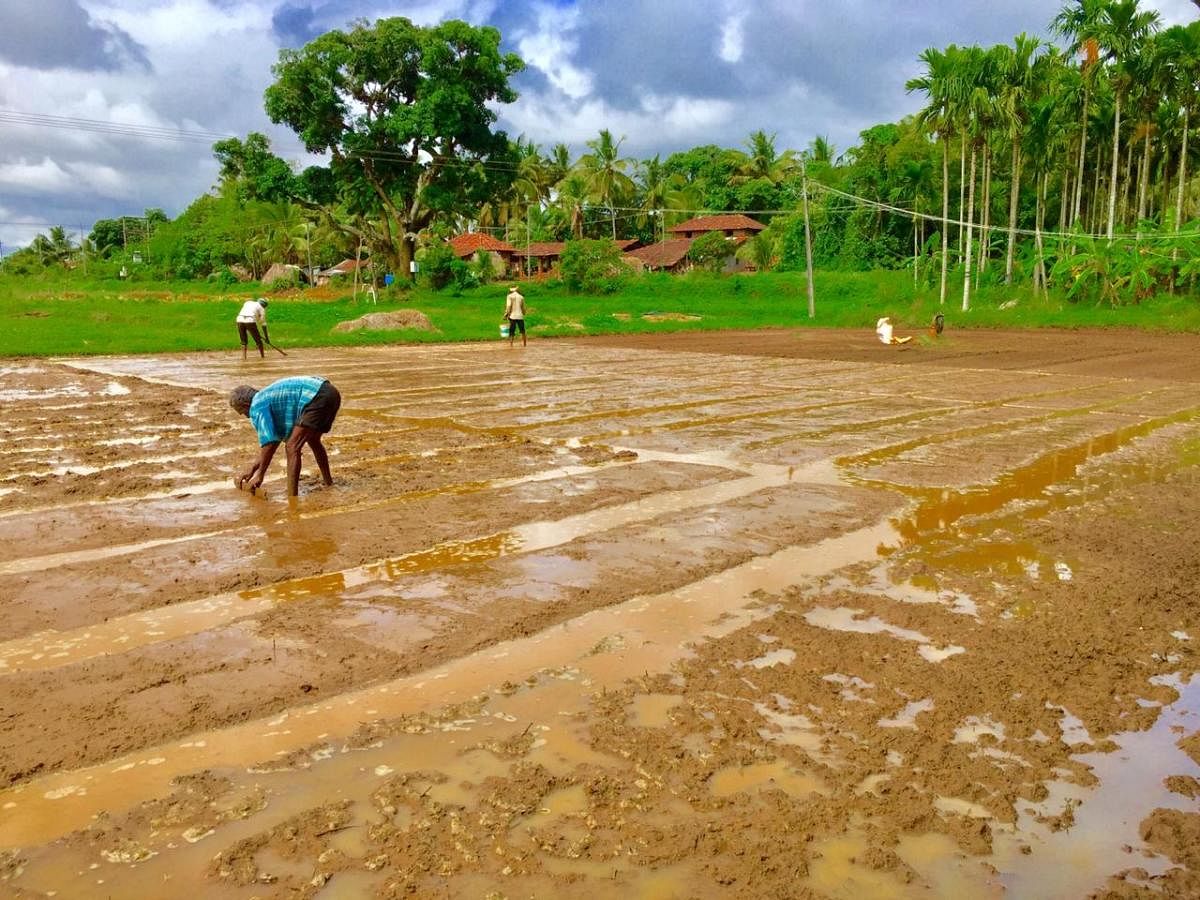In getting together for work, communities come together



On WhatsApp, Santosh posts jubilant pictures of work underway at his farm in Kalakardi village in Uttara Kannada district. His photos offer a glimpse of people working against a backdrop of brilliant green and blue. In some pictures, Santosh is operating a tractor himself, preparing the field for the cultivation of paddy.
Despite the coronavirus fear, agricultural activities continue in rural Karnataka. In Banavasi, the current situation has brought about change. Generally, these farms see a large number of agricultural workers, usually from neighbouring Haveri or Shivamogga districts, travelling each day for work. But with a restriction on movement of people, landowners are facing a shortage of labourers they have traditionally depended on to get cultivation underway. “Due to Covid-19, village residents don’t allow the entry of labourers from other places,” Santosh says.
In such a situation, the residents of the village, including farm owners, have come together to work in each other’s farms. Many of the youths from the village, who have returned from the city are also lending a hand in the farm work. “When we are home, we inevitably end up working,” says Santosh, a city-returnee himself.
Yuvaraj Gowda, a resident of Badangod village near Sirsi, grows paddy, arecanut, bananas and mangoes on his land. He has also come to depend on the local residents to get agricultural work done. “If four of us go to work in the neighbouring farm, then four people from there come to work on my farm. Some of us are managing this way,” he says.
A key factor in this system is trust and understanding among the villagers, Gowda says. In cases of increased work, the farm owner pays the workers the daily labour charge, fixed at Rs 350 per day.
People engage in activities such as land preparation, sowing, applying manure, and spraying chemicals etc.
In Gondi village in neighbouring Haveri district, Krishna, who worked as a cab driver in Bengaluru, returned home after work in the city dried up. His family grows ginger and paddy in four acres of land. “We require at least four to five people to work in the field every day,” he says. “No matter which season, you need at least a couple of people to maintain the crops. Now we are doing the work ourselves,” he says.
Yuvaraj says that in the surrounding villages, there is no shortage of labourers, as the people who would generally move out looking for work have stayed back. He says money doesn’t really enter the picture. “If someone is in trouble or in need of money, we help each other. That is the understanding,” he says.
While the lockdown and fear of the virus has fostered a sense of community among the people, it has also ravaged livelihoods of daily wage earners, who are unable to move out of their homes looking for work. In Badangod village alone, some 50 - 70 people who used to travel outside have stayed at home; five families that had migrated to places as far as Chikkamagaluru and Mangaluru have returned home in the past month. They are mostly unemployed.
Santosh, who is now home during the pandemic, says “Without work, there are many people who suffer. We just don’t hear about it,” he says.
Deccan Herald is on WhatsApp Channels| Join now for Breaking News & Editor's Picks